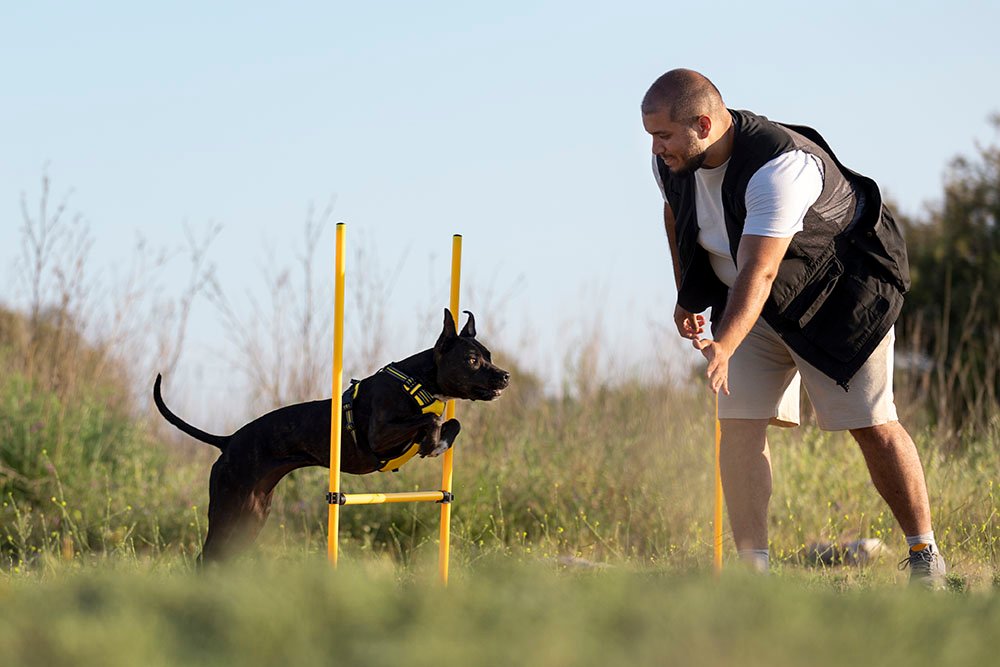Welcome to our comprehensive guide on Labrador Retrievers! If you’re considering adding a furry friend to your family, or if you already have one and want to learn more about this amazing breed, then you’ve come to the right place. Labrador Retrievers, often referred to simply as Labs, are one of the most popular dog breeds in the world for good reason. They are renowned for their intellect, adaptability, and gregarious demeanor. Whether you’re an active individual looking for a loyal companion or a family seeking a gentle and loving pet, Labrador Retrievers can fit seamlessly into various lifestyles. In this article, we’ll delve into everything there is to know about these lovable canines – from their history and origin to their physical characteristics and personality traits. So let’s dive in and discover all there is to know about Labrador Retrievers!
History and Origin of the Breed
Labrador Retrievers, often simply referred to as Labradors or Labs, have a fascinating history and origin that dates back several centuries. These lovable and versatile dogs were first developed in Newfoundland, Canada during the 18th century.
The ancestors of Labradors are believed to be a breed known as St. John’s Water Dogs, which were used by fishermen for their excellent swimming abilities and retrieving skills. These dogs played a crucial role in assisting fishermen by retrieving fish that had escaped from nets or fallen off hooks.
In the early 19th century, Labrador Retrievers were brought to England where they gained popularity among British nobility and eventually spread throughout Europe and North America. They quickly became renowned not only for their exceptional hunting capabilities but also for their friendly temperament and loyalty.
Labradors were officially recognized by the American Kennel Club (AKC) in 1917, solidifying their place as one of the most beloved dog breeds worldwide. Today, they continue to be highly sought after as family pets, service dogs, search-and-rescue companions, therapy animals, and much more.
Physical Characteristics and Personality Traits
Labrador Retrievers are known for their distinctive physical features and friendly personalities. These dogs have a medium to large build, with males typically weighing between 65-80 pounds and females ranging from 55-70 pounds. They have a strong, muscular body that allows them to excel in various activities such as swimming, running, and retrieving.
One of the most striking characteristics of Labradors is their coat. They have a short, dense double coat that comes in three main colors: yellow, black, or chocolate. This waterproof coat helps protect them from cold weather and water while they engage in their favorite activity – swimming!
Training and Exercise Needs

When it comes to training and exercise, Labrador Retrievers are an energetic breed that thrives on physical activity. These dogs have a natural inclination for learning and are highly intelligent, making them relatively easy to train. However, they can also be quite stubborn at times, so consistency and patience are key.
Exercise is essential for maintaining the happiness and health of labradors. They have a lot of energy to burn off, so daily walks or runs are essential. Additionally, providing mental stimulation is just as important as physical activity for these clever canines. Engaging in activities such as obedience training, agility courses, or puzzle toys will help keep their minds sharp.
Socialization is another crucial aspect of training for Labradors. Exposing them to different environments, people, and animals from an early age will ensure they grow up well-adjusted and friendly. It’s important to remember that Labradors thrive on human companionship; therefore, leaving them alone for extended periods can lead to separation anxiety or destructive behavior.
Positive reinforcement methods work best when training Labradors. Using treats praise or playtime rewards their good behavior rather than punishing their mistakes helps create a positive association with learning commands or new skills.
Diet and Nutrition for Labrador Retrievers

Diet and nutrition play a vital role in keeping your Labrador Retriever healthy and happy. These energetic dogs have specific dietary needs that should be met to ensure their overall well-being.
Labradors are known for their love of food, and it’s important to provide them with a balanced diet that includes all the essential nutrients they need. A high-quality commercial dog food formulated for large breeds is usually recommended. Look for one that lists lean proteins, whole grains, fruits, and vegetables as the main ingredients.
It’s crucial not to overfeed your Lab as they are prone to obesity. Obesity can lead to various health issues such as joint problems and diabetes. Follow the feeding guidelines provided by the manufacturer based on your Lab’s age, weight, and activity level.
Choosing the Right Labrador for Your Lifestyle
Choosing the right Labrador for your lifestyle is an important decision that requires careful consideration. Labradors are known for their friendly and outgoing personalities, but each individual dog has its own unique traits and energy levels.
First, think about your activity level and how much exercise you can provide for a Labrador. These dogs have high energy levels and require daily physical activity to stay happy and healthy. If you enjoy long walks or runs, a Labrador could be a great match for you. On the other hand, if you have a more sedentary lifestyle or limited mobility, it may be better to consider a different breed.
Next, consider the size of your living space. Labradors are medium to large-sized dogs that need room to move around comfortably. They thrive in homes with fenced yards where they can play freely. However, if you live in an apartment or have limited outdoor space, don’t worry! With enough exercise and mental stimulation, Labradors can adapt well to smaller living spaces.
Another factor to consider is your family dynamic. Labradors are known for being excellent family pets as they are generally good with children and other animals. However, it’s important to assess whether any potential allergies exist within your household before bringing home a Labrador.


